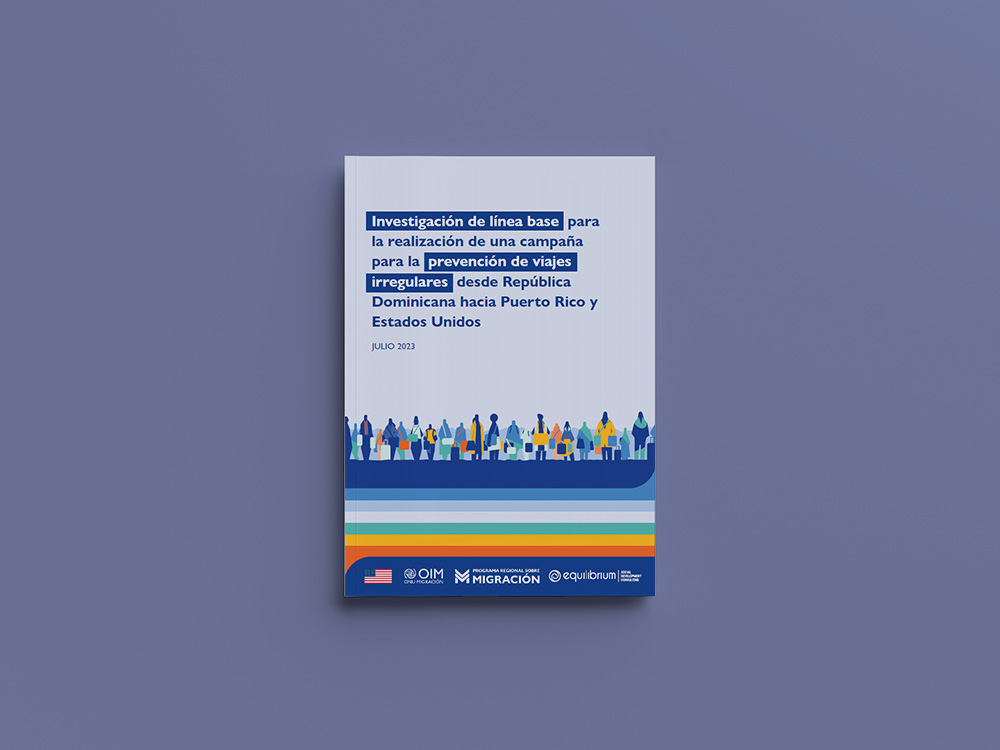
Investigación de línea base para la realización de una campaña para la prevención de viajes irregulares desde República Dominicana hacia Puerto Rico y Estados Unidos
Organización Internacional para las Migraciones (OIM) | 2024
Estudio de línea base que evidencia las condiciones y motivaciones detrás de la migración irregular desde la República Dominicana hacia los Estados Unidos de América o Puerto Rico, a través de una caracterización de su contexto geográfico, social, económico y migratorio. Se destacan los obstáculos y facilitadores en este proceso migratorio, así como la relevancia de identificar a los actores clave y canales de información que inciden en la toma de decisiones de esta población. Asimismo, subraya la importancia de implementar una campaña de Comunicación para el Desarrollo (C4D), con el fin de promover decisiones informadas sobre la migración..

Investigación de línea base para la realización de una campaña para la prevención de viajes irregulares desde República Dominicana hacia Puerto Rico y Estados Unidos
Organización Internacional para las Migraciones (OIM) | 2024
Estudio de línea base que evidencia las condiciones y motivaciones detrás de la migración irregular desde la República Dominicana hacia los Estados Unidos de América o Puerto Rico, a través de una caracterización de su contexto geográfico, social, económico y migratorio. Se destacan los obstáculos y facilitadores en este proceso migratorio, así como la relevancia de identificar a los actores clave y canales de información que inciden en la toma de decisiones de esta población. Asimismo, subraya la importancia de implementar una campaña de Comunicación para el Desarrollo (C4D), con el fin de promover decisiones informadas sobre la migración..
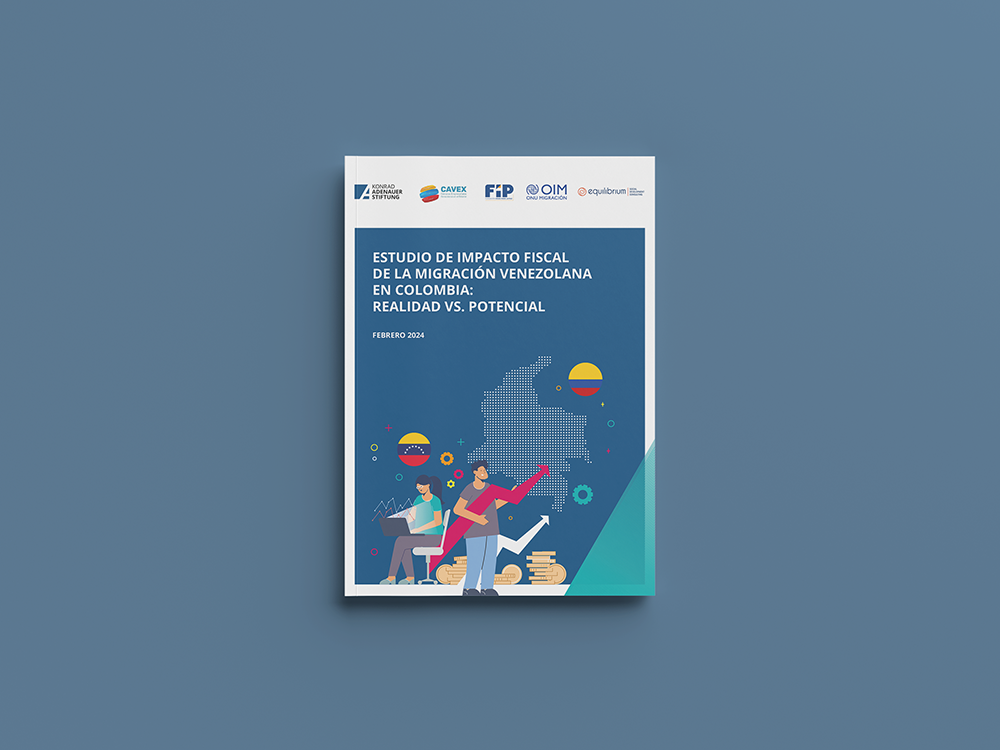
Impacto fiscal de la Migración Venezolana en Colombia: realidad vs. potencial
Fundación Konrad Adenauer (KAS) | 2024
El estudio “Impacto fiscal de la Migración Venezolana en Colombia: realidad vs. potencial” estima los niveles de consumo e ingresos fiscales de la población migrante venezolana en 2022, así como el impacto fiscal potencial que tendría la migración venezolana en Colombia en un escenario de integración total. Así mismo, se exploran las barreras de inserción de la población migrante venezolana en Colombia.
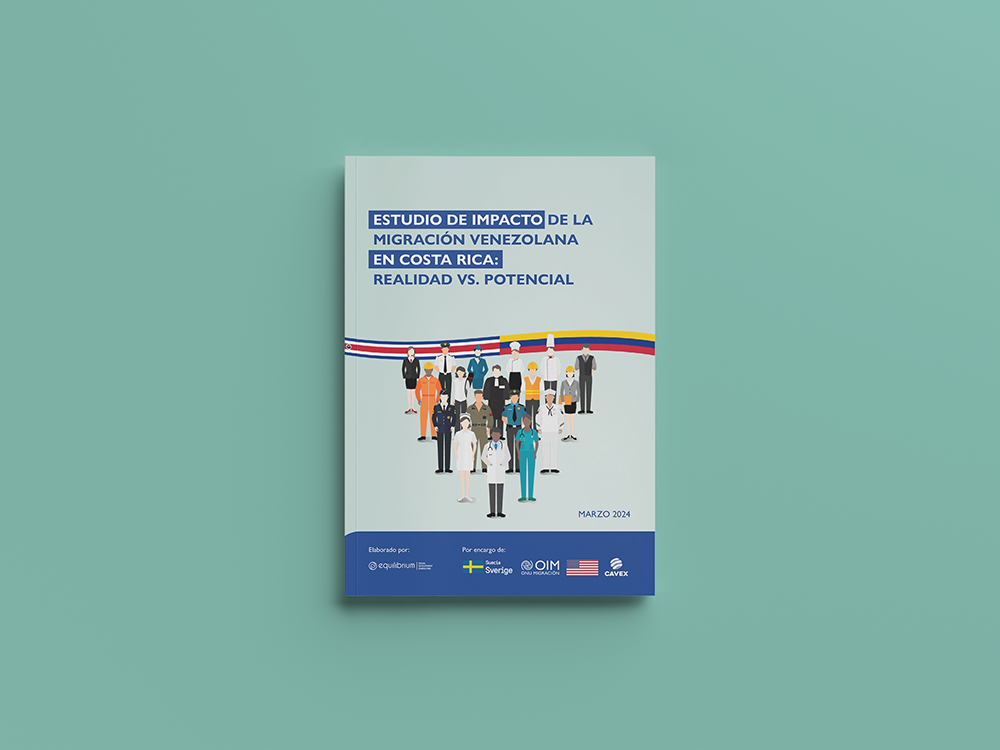
Estudio de impacto económico de la migración venezolana en Costa Rica: realidad vs. potencial
Organización Internacional para las Migraciones (OIM) | 2024
Este estudio considera fundamental evaluar el impacto actual de la migración venezolana en la economía costarricense mediante información acerca de los hábitos de consumo, generación de ingresos, e inversiones; y luego hacer una estimación de cuánto sus aportes fiscales y económicos podrían elevarse para el 2022, de darse ciertos supuestos de integración migratoria y socioeconómica en el país. Demostrando así que el impacto económico de la migración venezolana en Costa Rica es positivo.
“La migración funciona como un agente impulsor del desarrollo y estos estudios brindan evidencia empírica que fundamenta tal aseveración y demuestran de qué manera la migración puede promover el crecimiento de la fuerza social y económica en los países de acogida”, declaró Diego Beltrán, Enviado Especial de la OIM para la respuesta regional a los flujos de migrantes y refugiados venezolanos” (Fuente)
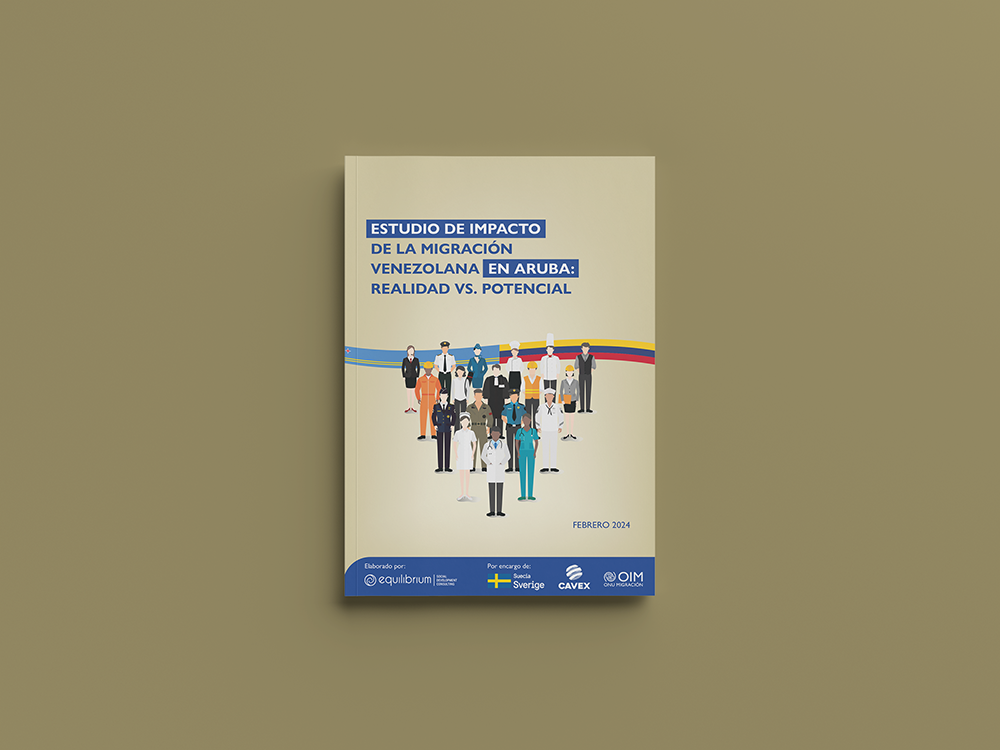
Estudio de impacto económico de la migración venezolana en Aruba: realidad vs. potencial
Organización Internacional para las Migraciones (OIM) | 2024
El estudio visibiliza las contribuciones que tiene la migración venezolana en la economía de Aruba desde sus distintas disciplinas profesionales e inversiones que suman al motor productivo del país, además de la contribución en el ámbito cultural y gastronómico.También evalúa el potencial impacto que tendría el desarrollo de este capital humano al implementar políticas que mitiguen las barreras existentes para la inserción de la población migrante y refugiada venezolana en la economía arubiana. “La diversidad enriquece a una sociedad en su conjunto”.

Intención de participación ciudadana y electoral de la población migrante venezolana en Ecuador
Fundación Konrad Adenauer (KAS) | 2024
Este estudio evidencia las condiciones y motivaciones detrás de la participación ciudadana de la población migrante venezolana residente en las ciudades de Quito, Guayaquil, Manta y Cuenca, a través de su involucramiento en los procesos y actividades de caracter cívico. Asimismo, se refleja la importancia de fortalecer los programas de inclusión social y participación ciudadana para esta población en Ecuador, a través de instituciones gubernamentales y de organizaciones de la sociedad civil que promuevan la reconstrucción del tejido social.
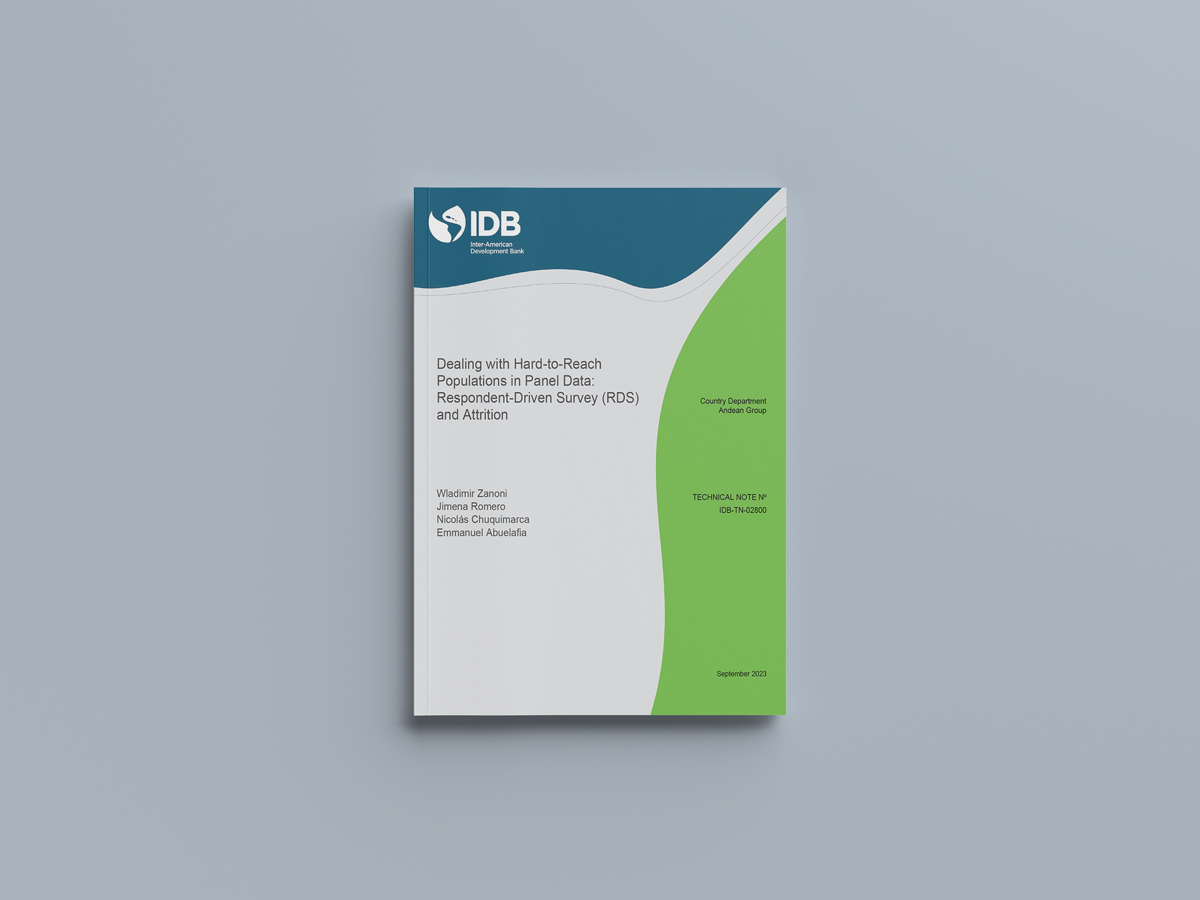
Dealing with Hard-to-Reach Populations in Panel Data: Respondent-Driven Survey (RDS) and Attrition
Inter-American Development Bank (IDB) | 2023
This study conducted by IDB with the support of Equilibrium in data collection and survey design, analyzes the challenges in sampling hard-to-reach populations, such as Venezuelan migrants, emphasizing the limitations of traditional methods. Therefore, the study presents the application of the Respondent-Driven Survey (RDS) method in longitudinal studies to address issues such as participant attrition. Applied to Venezuelan migrants in Ecuador and Peru, the methodology aims to maintain accurate sampling weights, providing valuable information on community experiences during a global pandemic and highlighting the importance of refining sampling techniques for such populations.
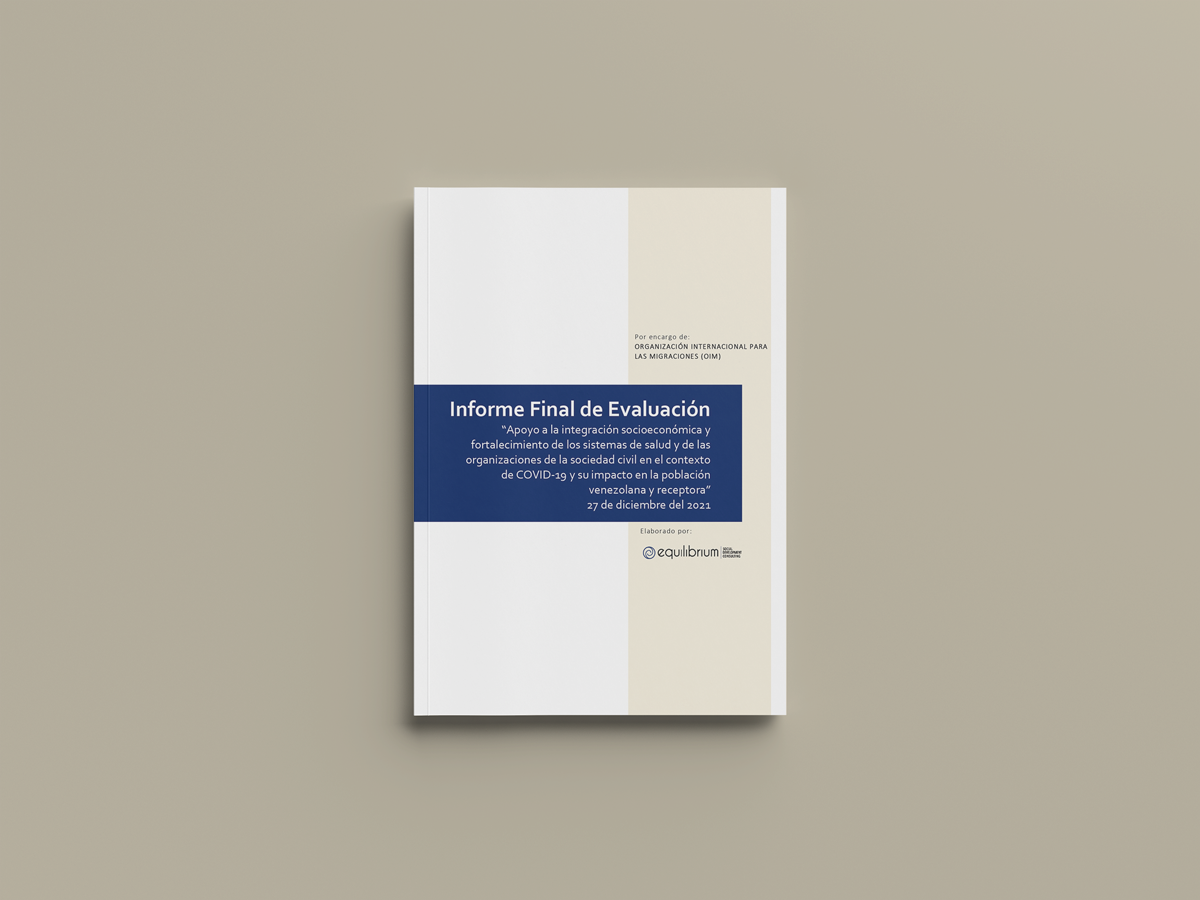
Final evaluation of the project “Support for socioeconomic integration and strengthening of health systems and civil society organizations in the context of Covid-19 and its impact on the Venezuelan and host population” in Peru
International Organization for Migration (IOM) | 2023
This report contains the results of the final external evaluation conducted by Equilibrium SDC of the socioeconomic integration and health systems strengthening project implemented by IOM. The analysis made it possible to determine the impacts of the project on socioeconomic, inclusive and sustainable development, emphasizing the strengthening of the actors and populations involved, as well as the provision of public services for the population.

Discrimination Against Migrants and its Determinants: Evidence from a Multi-Purpose Field Experiment in the Housing Rental Market
Inter-American Development Bank (IDB) | 2023
The study conducted by the IDB seeks to analyze discrimination in the rental housing market and its determinants in Colombia. For this purpose, Equilibrium SDC and ANOVA Policy Research were in charge of the field work. The research was based on the collection of information on rental applications from Colombian, Venezuelan and OECD families, as well as real estate agents, in order to investigate the role played by factors such as age, gender, knowledge of the local market, among others, in the rejection or acceptance of the rental application.
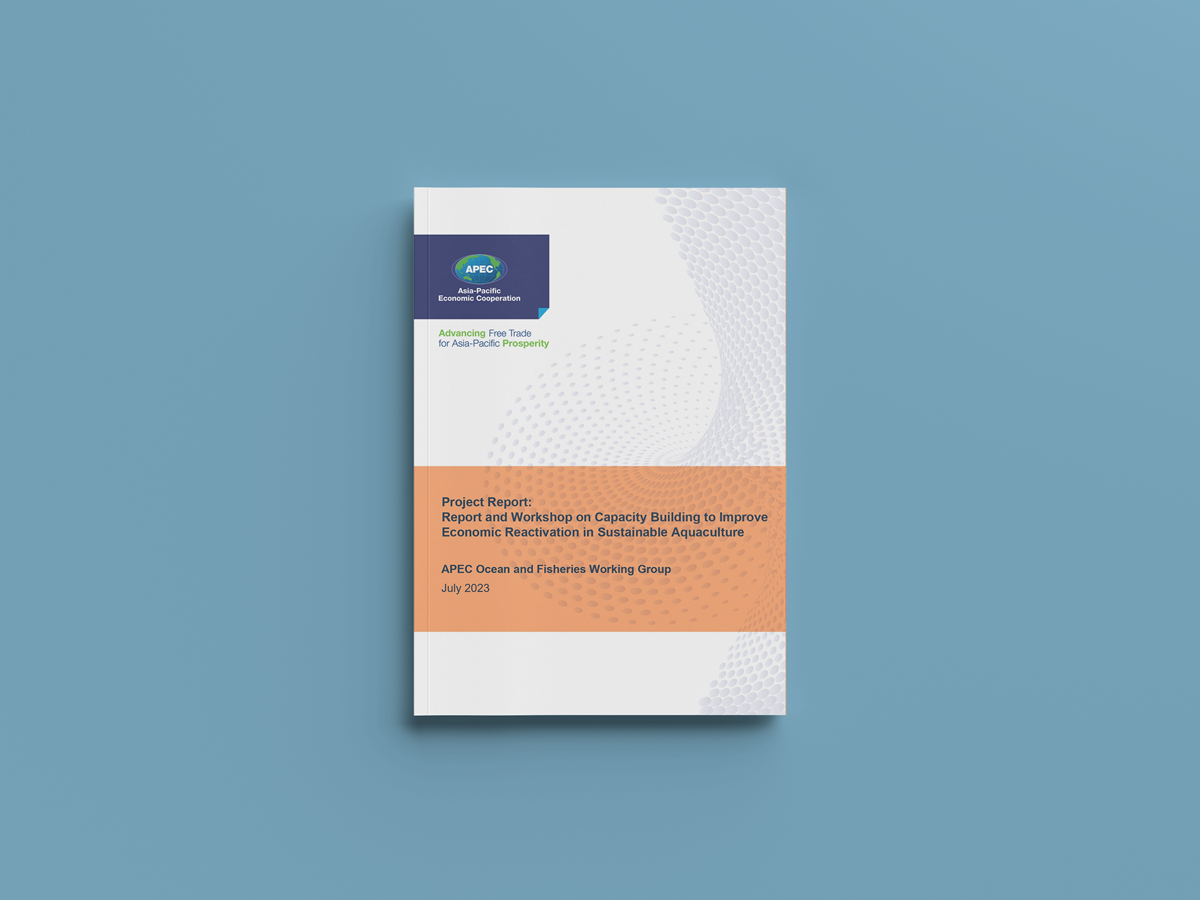
Project Report: Report and Workshop on Capacity Building to Improve Economic Reactivation in Sustainable Aquaculture
Asia Pacific Economic Cooperation (APEC) | 2023
The study was produced by Equilibrium SDC at the request of the Asia Pacific Economic Cooperation Forum. It aims to analyze the impact of the COVID-19 pandemic on the aquaculture sector in the APEC region. In order to propose public policy recommendations aimed at improving the economic response and sustainability of the SSA sector. The report contains an analysis of the pre and post pandemic context, an approach to APEC recovery actions and short and long term recommendations for the improvement of the sector.
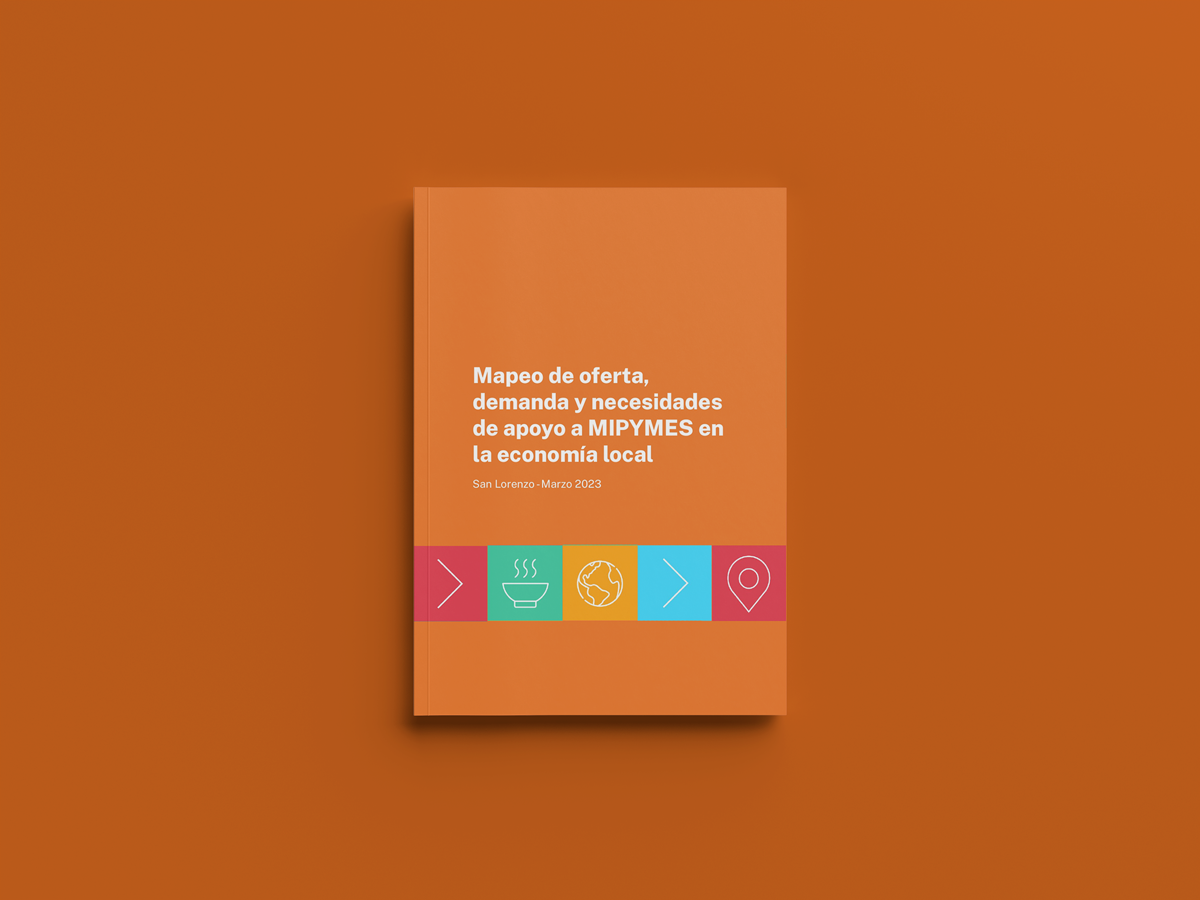
Results of the Mapping of Supply, Demand and Needs of Support to MSMEs in the Local Economy in the City of San Lorenzo
Laboratory of the United Nations Development Programme (UNDP), the Ministry of Industry and Trade and the Entrepreneur Support Centers (CAE) | 2023
The study was conducted jointly by Equilibrium SDC, UNDP, the Ministry of Industry and Commerce, and the Entrepreneur Support Centers (CAE). The objective of the study is to present the information obtained in the research on the availability, demand and support requirements for micro, small and medium-sized enterprises (MSMEs) in the local economy of San Lorenzo, as well as the main barriers they face for their growth. As a complement to the study, a toolbox was prepared for CAE workers with indications and explanations on how to carry out a diagnosis.
See Tolkit– Community Toolkit: How to make a sectoral diagnosis of MSMEs in a local economy to understand their service offer and their main needs?
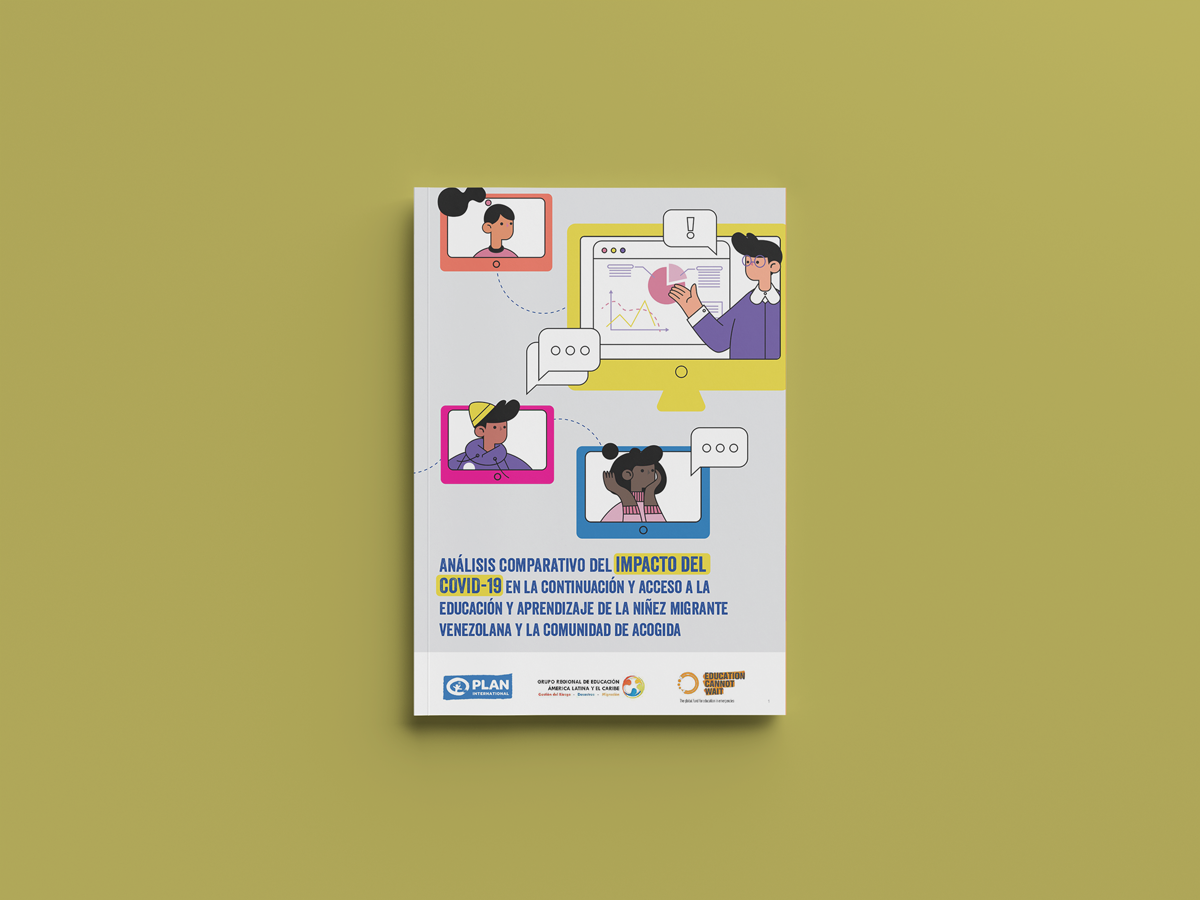
Covid-19’s impact on the education of Venezuelan migrant and refugee children in Latin America
International Plan | 2023
The study was conducted by Equilibrium SDC, commissioned by the Regional Education Group for Latin America and the Caribbean, Plan International and Education Cannot Wait (EWC). The research seeks to demonstrate the impacts of the pandemic on the learning processes and access to education of children, both of the host population and of migrants and refugees from Venezuela in Colombia, Ecuador and Peru. Throughout the report, the effects that this phenomenon had on the quality of education and socioemotional aspects in children are analyzed. Therefore, a comparison is made of the dynamics before the closure of schools, during the confinement and distance education.
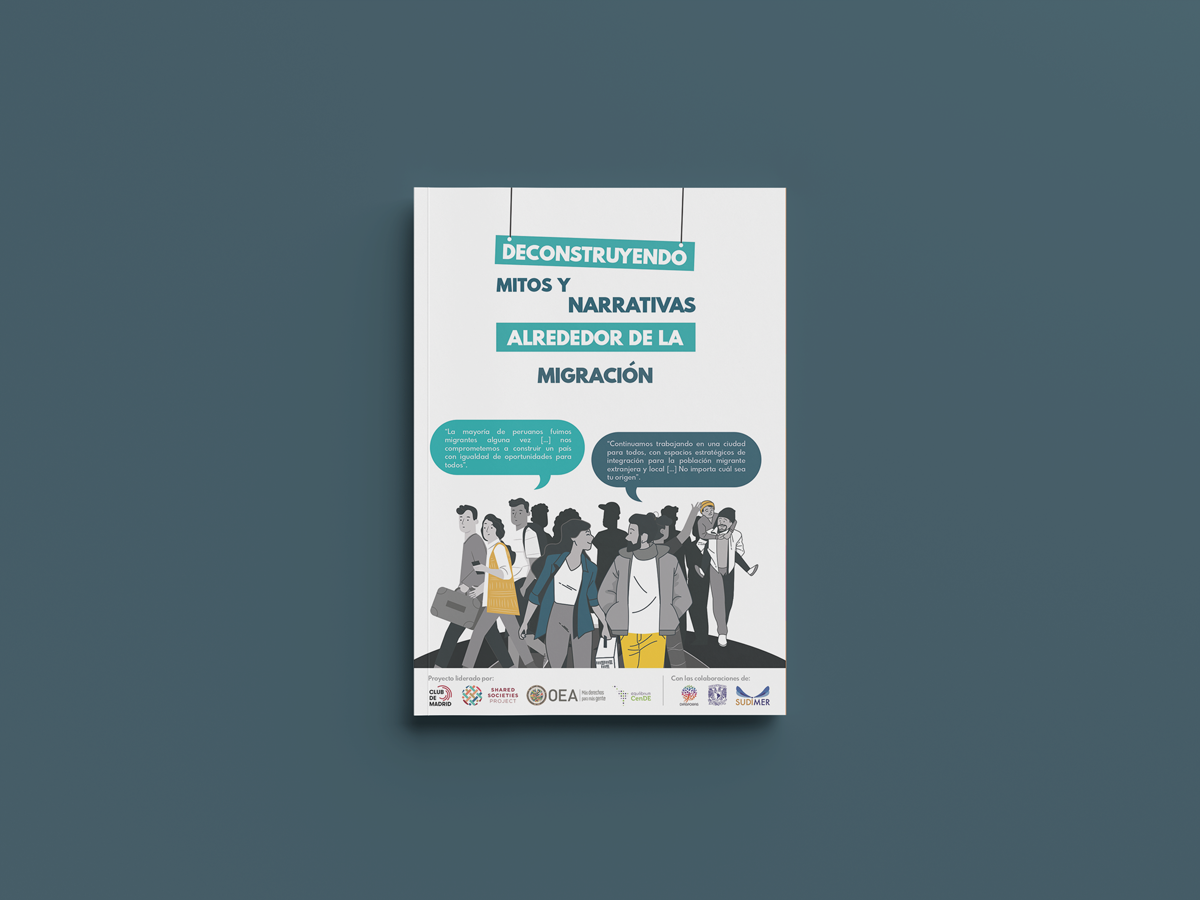
Deconstructing myths and narratives around migration: Analysis and recommendations from the experiences of Colombia, Mexico and Peru.
Club de Madrid | 2023
This report was prepared by Equilibrium CenDE, the Department of Social Inclusion of the Organization of American States and the Club de Madrid. It aims to identify those discourses that promote hate and discrimination, in order to assess the impact of these discourses and migration policies on the rights of migrants, asylum seekers and refugees in Colombia, Mexico and Peru. The study also includes a review of public policies that have worked to mitigate these dynamics of discrimination as a reference of good practices.
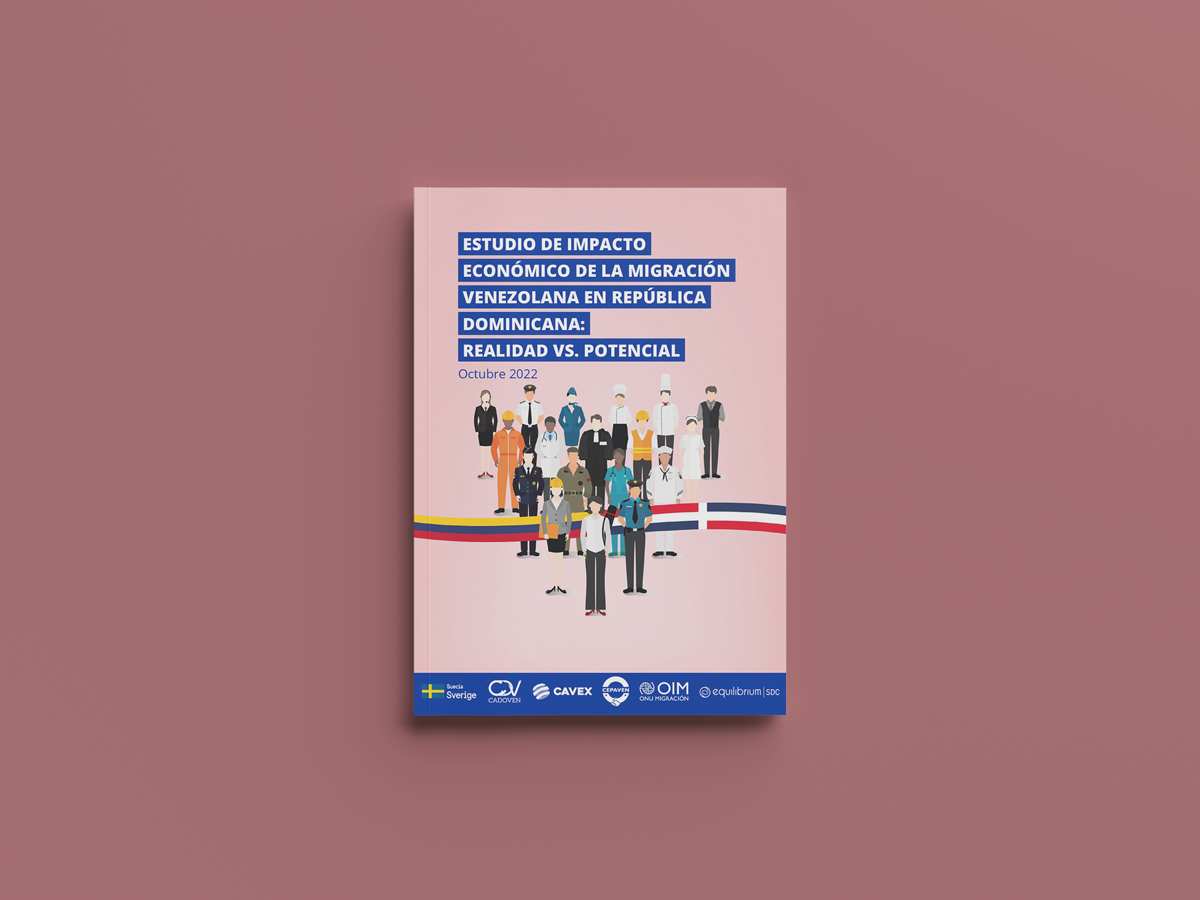
Study of the economic impact of Venezuelan migration in the Dominican Republic: reality vs. potential
Chamber of Venezuelan Businessmen Abroad (CAVEX) and the Dominican-Venezuelan Chamber of Businessmen (CADOVEN) | 2022
The study conducted by Equilibrium SDC, commissioned by CAVEX and CADOVEN, aims to evaluate the economic impact that Venezuelan migration has had, as well as its potential in the Dominican Republic. To this end, the report analyzes the consumption habits, income generation and barriers to socioeconomic integration of this population during the months of June and September 2022.
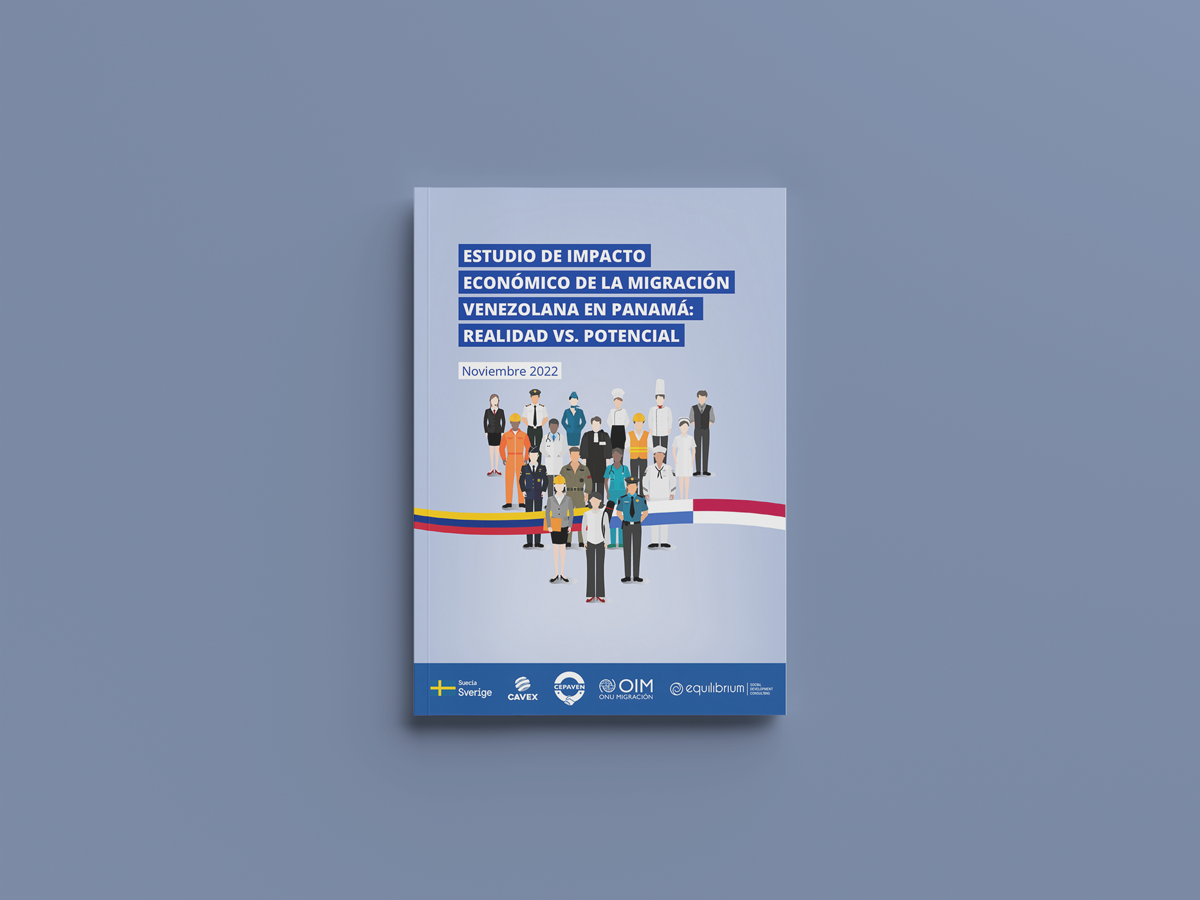
Study of the economic impact of Venezuelan migration in Panama: reality vs. potential
Chamber of Panamanian-Venezuelan Businessmen (CEPAVEN) and the Chamber of Venezuelan Businessmen Abroad (CAVEX) | 2022
The study conducted by Equilibrium SDC, commissioned by CEPAVEN and CAVEX, aims to evaluate the economic impact that Venezuelan migration has had, as well as its potential in Panama. To this end, the report analyzes the consumption habits, income generation and barriers to the socioeconomic integration of this population during the months of June and September 2022.
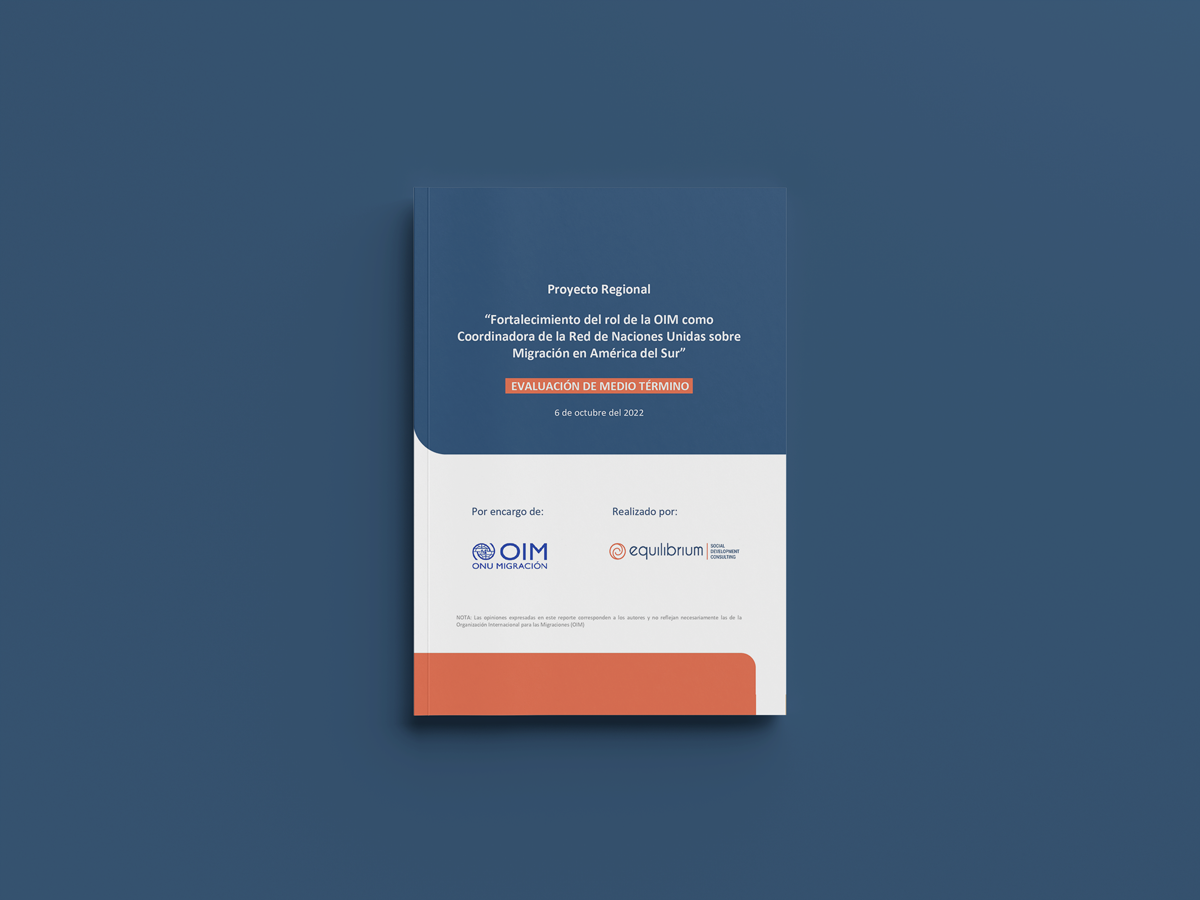
Evaluation Report: Strengthening IOM’s Role as Coordinator of the United Nations Network on Migration in South America
International Organization for Migration (IOM) | 2022
This report contains the results of the mid-term evaluation conducted by Equilibrium SDC. Through this evaluation, we sought to understand the magnitude and the way in which the strengthening project has enhanced the skills and leadership of the IOM regional office and country offices, during the period evaluated, in their role of coordinating the Regional Network and National Networks of the United Nations focused on migration.
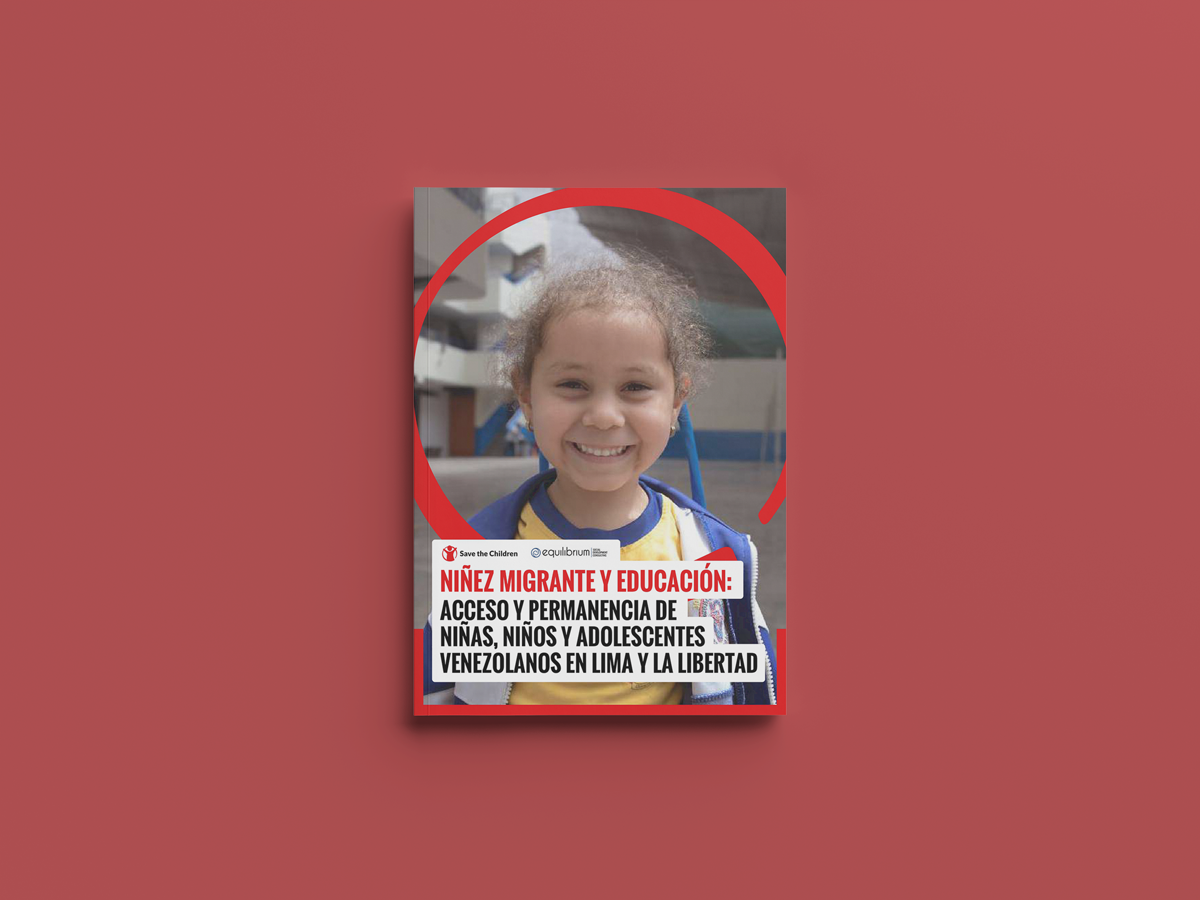
Migrant children and education: access and permanence of Venezuelan children and adolescents in Lima and freedom
Save the Children | 2022
Save the Children’s study gathers the results of more than 800 surveys, focus groups and interviews conducted by Equilibrium SDC. The target population consisted of mothers, fathers and legal representatives of Venezuelan children and adolescents (NNA) living in Peru. Specifically, this research made it possible to identify the shortcomings in current Peruvian educational policy, in order to propose improvements and actions to meet the needs of the population of educational age. The analysis had a cross-cutting gender approach and seeks to contribute to the improvement of access to the Peruvian educational system.
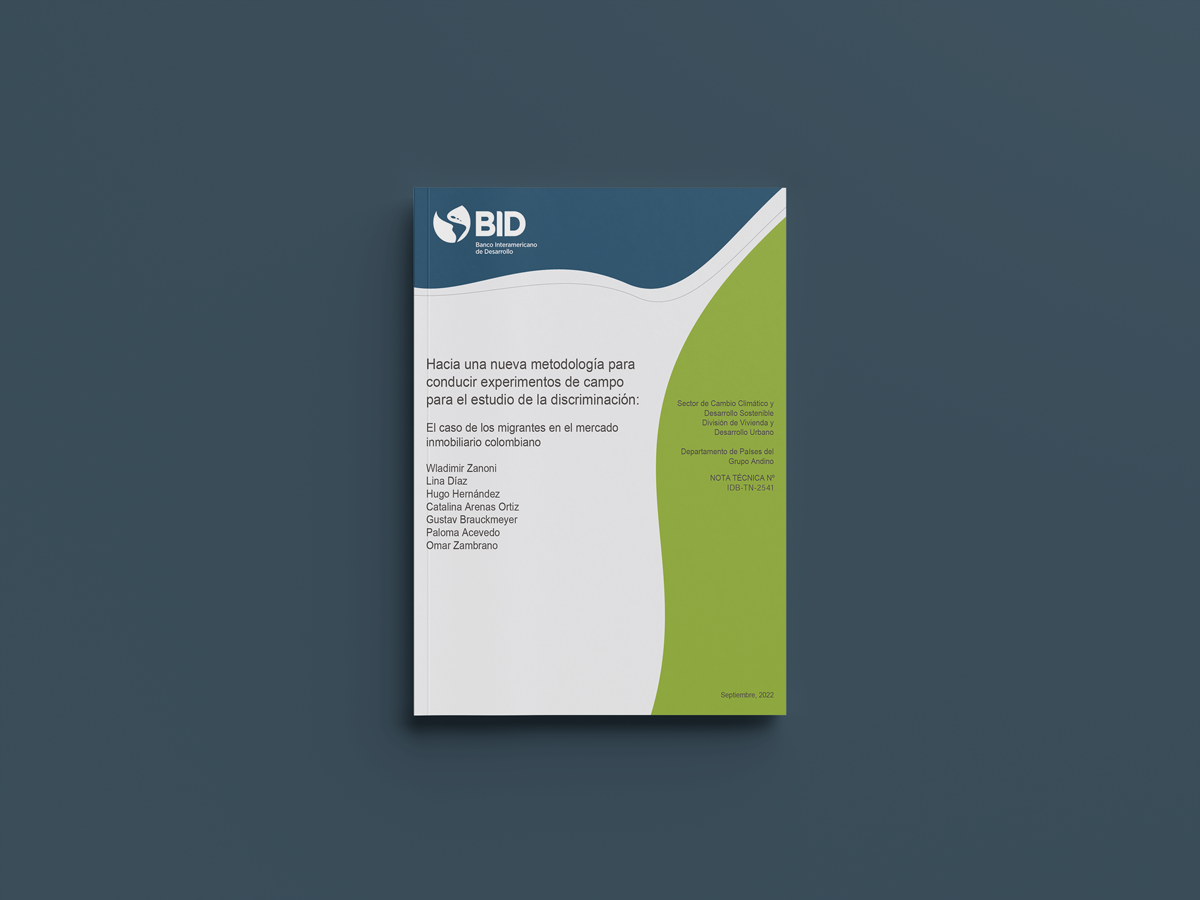
Towards a new methodology for conducting field experiments for the study of discrimination: the case of migrants in the Colombian real estate market
Inter-American Development Bank (IDB) | 2022
This technical note conducted by the Inter-American Development Bank in collaboration with Equilibrium SDC and ANOVA Policy Research, details the execution of an experimental field study conducted between 2021 and 2022 in Colombia, whose purpose was to measure the magnitude and factors that influence discrimination towards Venezuelan migrants in the country’s real estate sector. The objective of this report is to explain how the vignette study methodology with participant-based sampling was applied to measure discrimination based on different scenarios and characteristics of the population such as gender, sexual orientation, ethnicity, place of origin, among others.
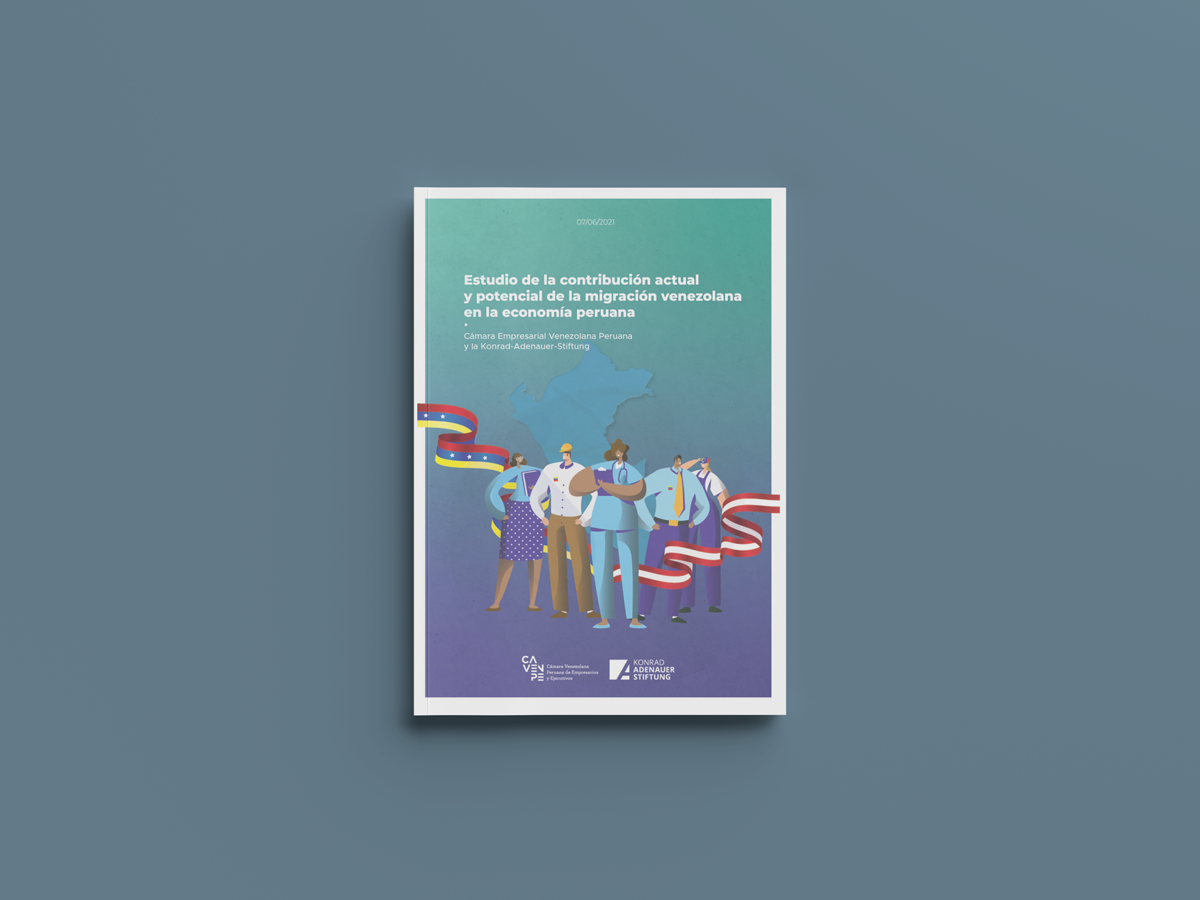
Study of the current and potential contribution of Venezuelan migration in the Peruvian economy
Venezuelan-Peruvian Business Chamber (CAVENPE) and the Konrad-Adenauer-Stiftung | 2021
This study was coordinated and researched by Equilibrium SDC, commissioned by CAVENPE and Konrad-Adenauer-Stiftung. Its purpose is to evaluate the economic impact of Venezuelan migration and its potential in Peru. To this end, the report analyzes the consumption habits, income generation and fiscal costs associated with migration, as well as the barriers to the socioeconomic integration of this population, in order to generate optimal strategies to mitigate them.
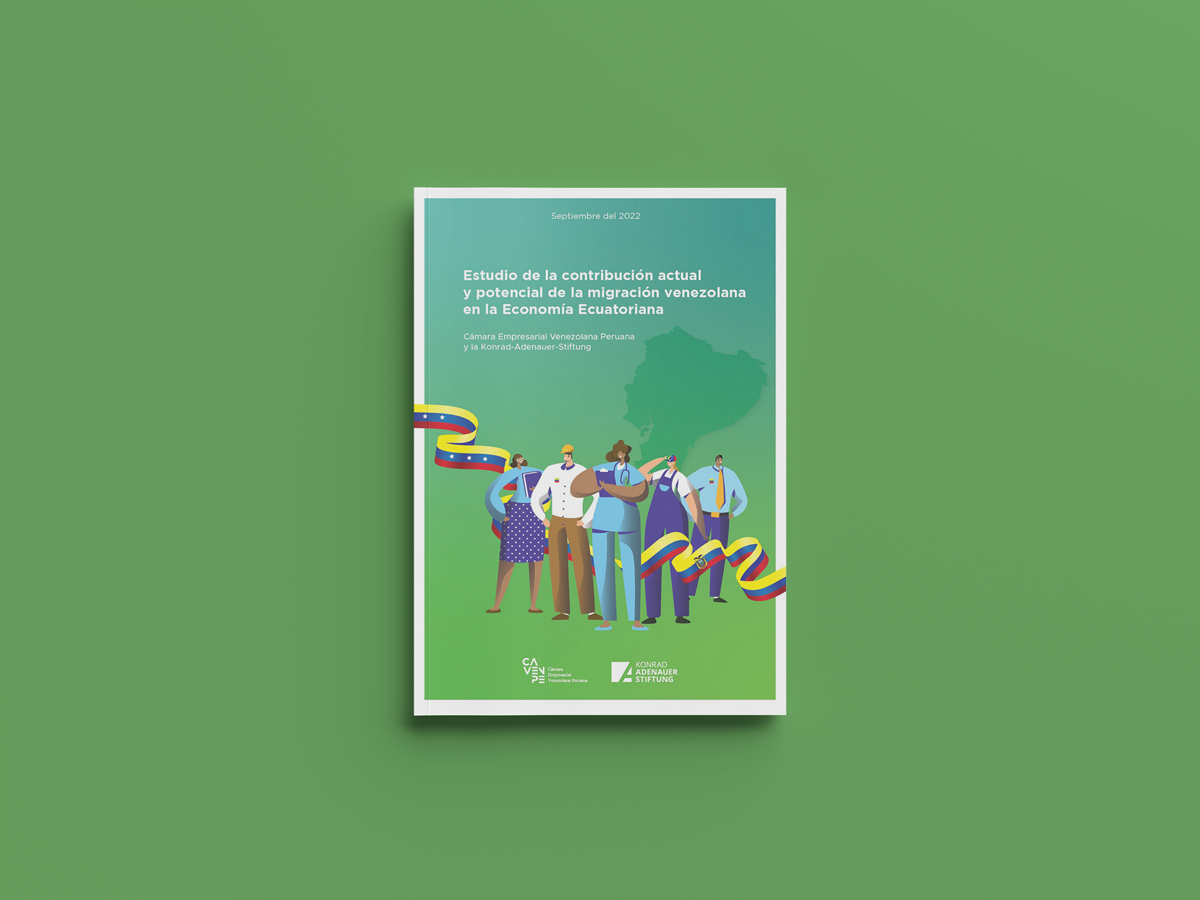
Study of the current and potential contribution of Venezuelan migration to the Ecuadorian economy
Venezuelan-Peruvian Chamber of Entrepreneurs and Executives (CAVENPE) and the Konrad-Adenauer-Stiftung | 2021
The Venezuelan-Peruvian Chamber of Entrepreneurs and Executives (CAVENPE) and the Konrad-Adenauer-Stiftung (KAS), together with Equilibrium SDC, have conducted this study with the main objective of measuring the actual and potential economic impact of Venezuelan migration on the Ecuadorian economy. To this end, the report analyzes the consumption habits, income generation and fiscal costs associated with migration, as well as the barriers to the socioeconomic integration of this population, in order to generate optimal strategies to mitigate them.

IDEHPUCP Bulletins
Institute for Democracy and Human Rights (IDEHPUCP) | 2021
The IDEHPUCP has prepared a series of three bulletins based on the 2021 opinion survey implemented by Equilibrium SDC. The main purpose of these publications was to share the findings of the survey and, therefore, to analyze the unfavorable perception that the Peruvian population had about the integration of Venezuelan migrants and refugees in the country. The survey took into account multiple variables, including gender and age, among others.
See Bulletin N°01 – Perception Survey on the role of opinion leaders and Venezuelan migration in Peru.
See Bulletin N°02 – Perception of Venezuelan society and migration in Peru.
See Bulletin N°03 – Perception of health and Venezuelan migration in Peru.
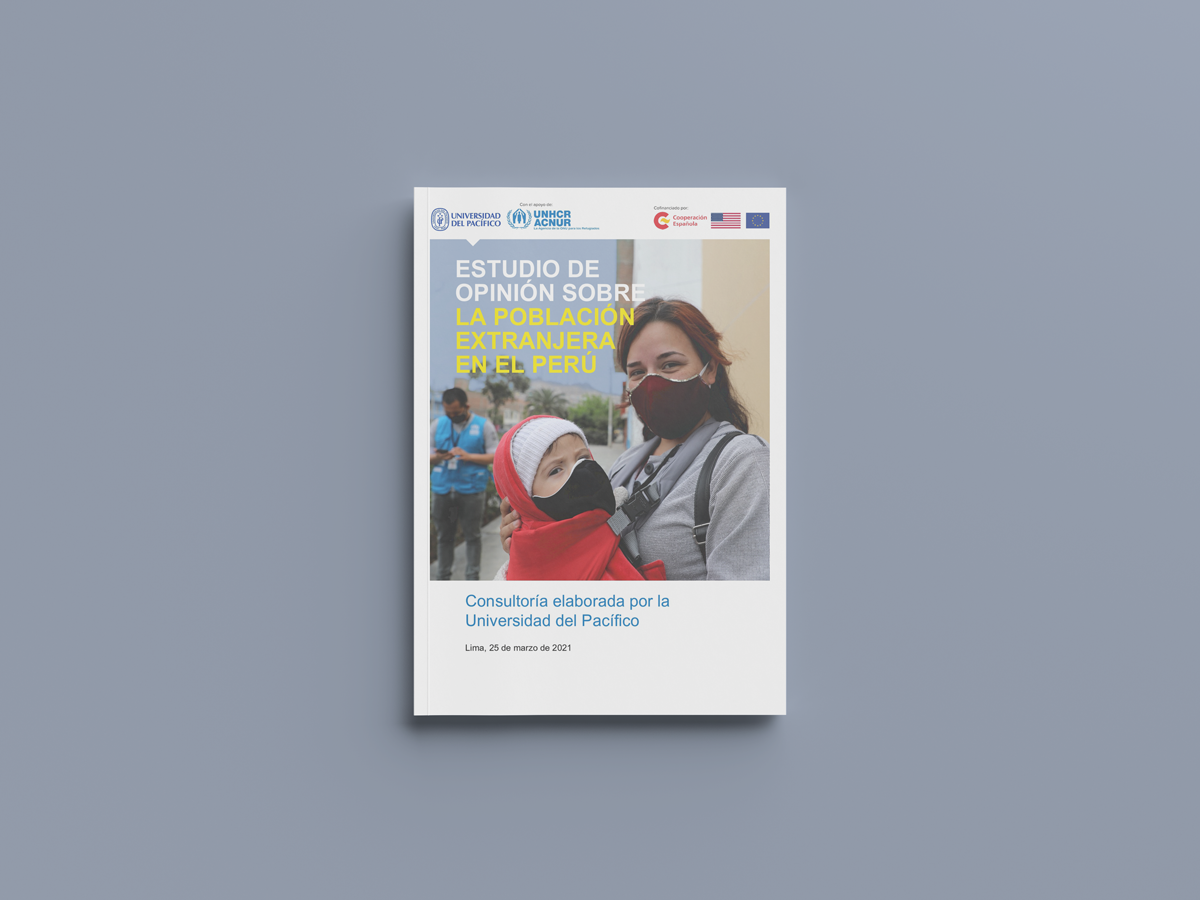
Opinion survey on the foreign population in Peru
Universidad del Pacifico and UN Refugee Agency (UNHCR) | 2021
This research, conducted by the Universidad del Pacifico for UNHCR, aims to carry out an opinion study on the Venezuelan refugee and migrant population in Peru. To this end, the results of an opinion survey of the local population conducted by Equilibrium SDC for CIUP and a diagnosis of discrimination by nationality in the Peruvian media were analyzed.

